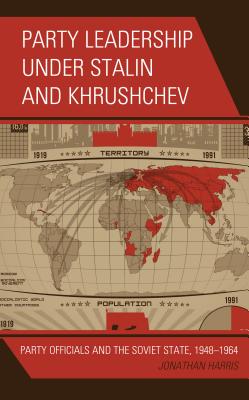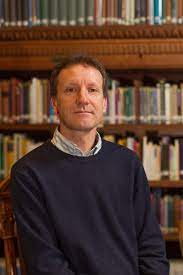

 Lexington Books
Lexington Books
Party Leadership Under Stalin and Khrushchev: Party Officials and the Soviet State, 1948-1964


Key Metrics
- Jonathan Harris
- Lexington Books
- Hardcover
- 9781498528382
- 9.1 X 6.1 X 0.9 inches
- 1.25 pounds
- History > Russia & the Former Soviet Union
- English
 Secure Transaction
Secure TransactionBook Description
Author Bio
I teach Medieval History and offer a first-year introductory course in the topic called ‘Rome to Renaissance’. My research and second and third-year teaching focus on Byzantium (or the Byzantine empire). Effectively that means Eastern Europe in the period 602-1453 CE and the now vanished Christian state centred on the city of Constantinople (modern Istanbul). Byzantium is not well-known in this country but it is the origin of the Orthodox Christian culture of Russia, Greece and other eastern European countries.
I have always been interested in how Byzantium interacted with the world around it, both with its Christian neighbours to the west and Muslim ones to the east. I wrote my PhD on the refugees who left Constantinople when the city fell to the Ottoman Turks in 1453, the moment when Byzantium came to an end. Many of them headed west to Italy, France and even, in a few cases, to England. Later I became interested in the enigma of the Crusades. The First Crusade was launched by the Pope in 1095, partly with a view to helping the Byzantine emperor against the Seljuk Turks. Yet just over one hundred years later, the Fourth Crusade captured and sacked the Byzantine capital of Constantinople. I explored this paradox in Byzantium and the Crusades, which is now in its second edition.
The work of mine that has probably had the most impact is The Lost World of Byzantium. Published in 2015, it has since been translated into Chinese, Greek, Japanese, Romanian and Russian. It aims to be an accessible (and hopefully entertaining) first taste of this mysterious yet fascinating society. My latest publication is a textbook for university students: Introduction to Byzantium, 602–1453.
Source: Royal Holloway University of London
Videos
No Videos
Community reviews
Write a ReviewNo Community reviews